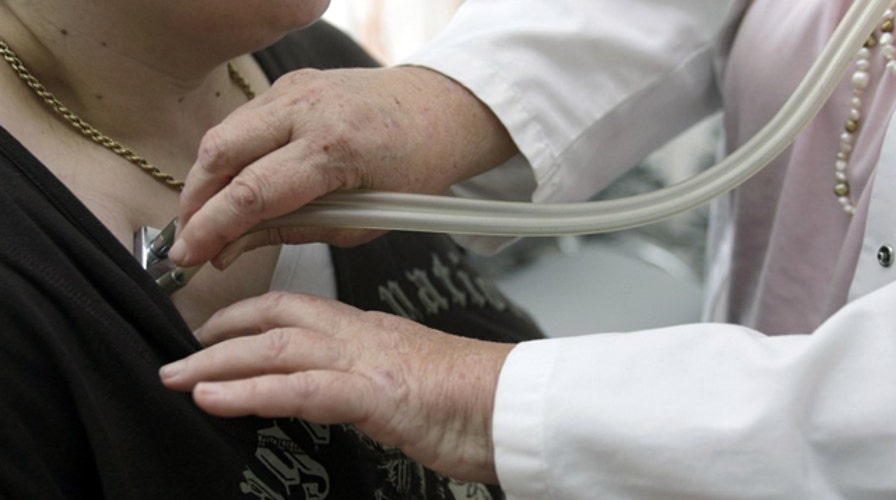Concerns over wait times, patient rationing under ObamaCare
Jim Angle reports from Washington, D.C.
Several states are wrestling with one of the key aspects of ObamaCare: keeping premiums low, which the administration wanted to boost enrollment.
But that also meant consumers had fewer providers to choose from, since the doctors needed to be willing to accept lower reimbursements.
Now consumers may find themselves searching more networks for hospitals and doctors than ever before.
"They're going to find that they can't see the doctor they want to see or the hospital they want to go to, because a lot of the best hospitals and the best doctors are not in their network," said John Goodman of the National Center for Policy Analysis.
Bob Rusbuldt, president of the Independent Insurance Agents and Brokers of America, voiced consumer concerns, such as saying "Ok, I can't use this hospital, which is two miles from my house. I have to go 20 miles to another county to another hospital, because mine is not in the network."
That scenario could mean it will be harder to find and get an appointment with a doctor who is in the exchange.
At the same time, with fewer doctors and hospitals and more patients, lines are likely to grow, which many argue means patients could face rationing by waiting – akin to the current situation uncovered at the Veterans Administration.
"We're all in the VA now," said Merrill Matthews of the Institute of Policy Innovation. "The things that are happening in the VA are similar to what are happening, what will happen in ObamaCare."
However, with ObamaCare, unlike the VA, insurance is through private companies.
But for ObamaCare, the government specified a list of required and expensive benefits and enacted more than 20,000 pages of regulations -- all while urging companies to keep down the cost of premiums -- which could lead to more patients than the system can handle.
"So you have rationing by waiting, you have issues of never having the resources that you need to address all the problems," said Matthews.
Rusbuldt added, "there has to be a balance there and we're seeing that balance come out in higher deductibles, higher premiums and, of course, less choice."
Although narrow networks may lead to long waits, they appear to be key to holding down costs.
Bob Laszewski, of Health Policy and Strategy Associates, said the narrow networks are "worth a 25 percent reduction in the premium. So when you go to a narrow network, as a consumer you're giving something up. You're giving up access to doctors and hospitals."
In at least one respect, ObamaCare is more onerous that VA health care because to keep prices down, the less expensive exchange plans also have higher deductibles, something veterans do not face.





